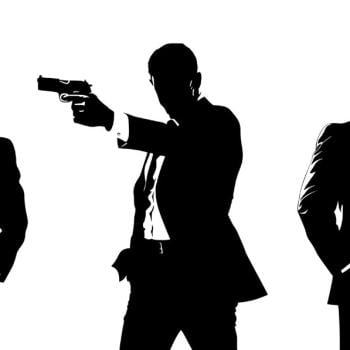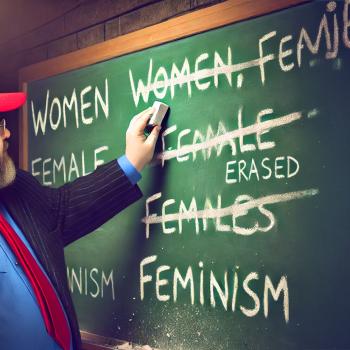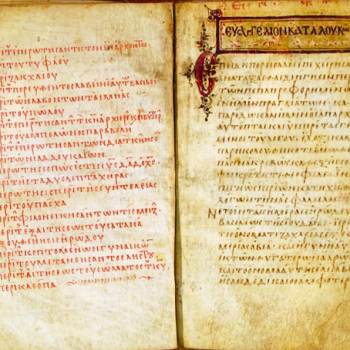Editors' Note: This article is part of the Patheos Public Square on Faith and the Election. Read other perspectives here.
Since North Carolina's General Assembly and Governor Pat McCrory enacted House Bill 2, which has been widely criticized as the nation's worst anti-LGBTQ law, opposition has sprung up like dandelions in a Southern spring. First it was the Human Rights Campaign; then Mark Zuckerberg and the airlines began calling for repeal. Bruce Springsteen joined the cause, canceling a sold-out show in the Old North State. Then the U.S. Justice Department weighed in, threatening to cut off billions of dollars of federal funding. Outside observers initially wondered at McCrory's stubbornness in the "bathroom wars," but those of us who watched his rise to power are not surprised. Because HB2 is not about bathrooms. It's about exploiting people of faith to try to hold onto power.
We believe the experience of faith-rooted organizing on the ground in North Carolina's Moral Movement illuminates a way toward engagement in the public square that moves beyond liberal and conservative, left versus right categories to the "higher ground" of common good and justice for all. Because North Carolina has become ground zero for the "bathroom wars," this issue makes the point as well as any in this election season.
The one-day emergency session that created HB2 was only possible because an extremely conservative supermajority gained power in our General Assembly by first gerrymandering voting districts in 2011, then passing an omnibus voter suppression bill after the Supreme Court's Shelby decision in 2013. Many have noted the logical inconsistency of HB2, which aims to fix a problem that doesn't exist (namely, transgender people committing assault in women's restrooms). But this legislation was not introduced in an election year to protect women and children. It was widely publicized and ceremoniously signed to protect the political power of Governor McCrory and his allies.
Just such a political strategy propelled McCrory into an unholy alliance with our General Assembly during his 2012 campaign. With approval ratings for the Republican-led legislature as low as 17 percent, state party strategists sought a rallying point for social conservatives to increase voter turn-out (since taking over the legislature in 2010, Republican leadership had struggled against a Democratic governor).
McCrory had been a celebrated moderate as Mayor of Charlotte and the Democratic incumbent governor had opted not to run against him. He might well have won on his own merit. But Amendment One, a constitutional ban on gay marriage introduced on the primary ballot, showed McCrory the power of sex-baiting in a state whose most famous public personality is a Baptist preacher. Billy Graham endorsed the measure from his sick bed, and McCrory rode into office by joining older, white party extremists in pitting social conservatives against the more diverse statewide electorate whose growing power the General Assembly had sought to curb through gerrymandering.
Power gained so ruthlessly is rarely exercised with restraint. With guidance from Budget Director Art Pope, McCrory joined then Speaker of the House Thom Tillis and Senate leader Phil Berger to remake North Carolina's government. They rewrote the tax code, gutting public funding, then set out to balance the budget by slashing state spending on everything from education to social services. Foreshadowing their current resistance to federal intervention, they refused Medicaid expansion under the Affordable Care Act and denied an extension of federal unemployment insurance to North Carolinians. To complete their quiet coup, they passed the worst attack on voting rights since post-Reconstruction measures which ushered in Jim Crow.
When we, the people of North Carolina, objected to this abuse of power, Capitol police arrested over 1,000 people at "Moral Mondays," a resistance movement that became the largest state-government focused direct action campaign in U.S. history. A Superior Court Judge ultimately ruled these arrests illegal, just as federal judges would later strike down the racially gerrymandered voting districts that were the basis of their power. But the rule of law has proven to be too little too late against this 21st-century brand of extremism. McCrory knows that the majority of North Carolinians are not with him. The only way to hold onto power is to continue to stoke the fires of hatred and fear.
We understand that McCrory's defense of HB2 is not a political misstep, but a carefully calculated attempt to get social and religious conservatives to vote against their own interests by focusing their attention on a transgendered boogeyman who does not exist. This strategy has not only worked for McCrory in the past. It also ushered Governor Charles B. Aycock into power in 1900, when calls to "protect our women and children" from black men who had been emboldened by the franchise propelled a white supremacy government into power. The Jim Crow laws which that administration established were only overthrown through long, hard struggle and federal intervention. McCrory knows that his conservative "Christian" base still resents the U.S. Justice Department.




